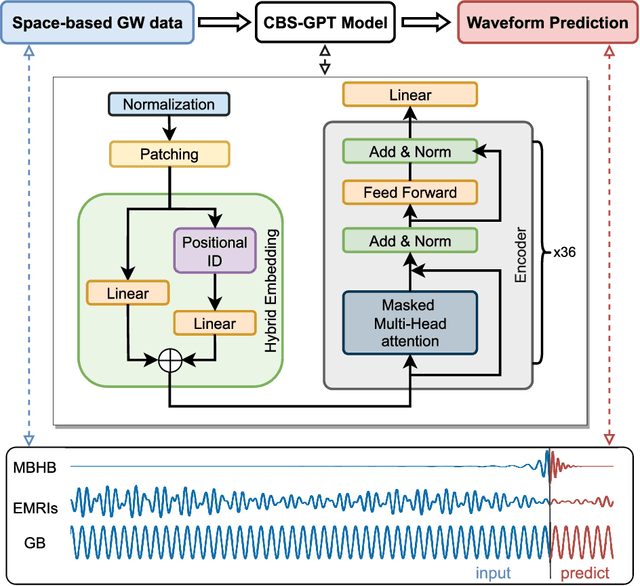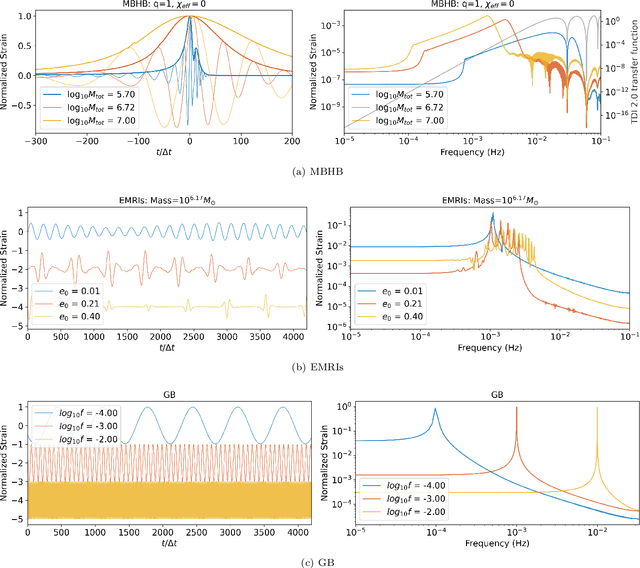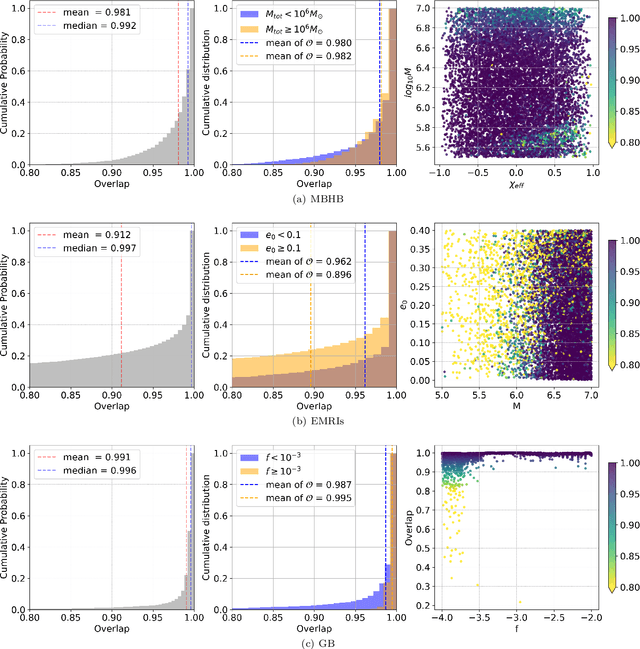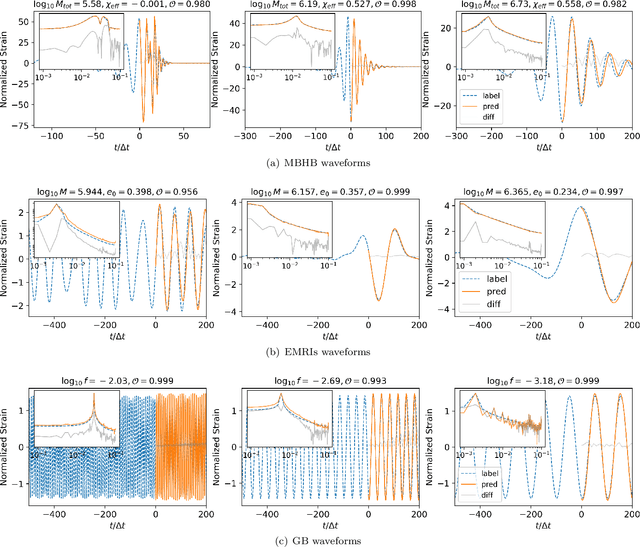Compact Binary Systems Waveform Generation with Generative Pre-trained Transformer
Paper and Code
Oct 31, 2023



Space-based gravitational wave detection is one of the most anticipated gravitational wave (GW) detection projects in the next decade, which will detect abundant compact binary systems. However, the precise prediction of space GW waveforms remains unexplored. To solve the data processing difficulty in the increasing waveform complexity caused by detectors' response and second-generation time-delay interferometry (TDI 2.0), an interpretable pre-trained large model named CBS-GPT (Compact Binary Systems Waveform Generation with Generative Pre-trained Transformer) is proposed. For compact binary system waveforms, three models were trained to predict the waveforms of massive black hole binary (MBHB), extreme mass-ratio inspirals (EMRIs), and galactic binary (GB), achieving prediction accuracies of 98%, 91%, and 99%, respectively. The CBS-GPT model exhibits notable interpretability, with its hidden parameters effectively capturing the intricate information of waveforms, even with complex instrument response and a wide parameter range. Our research demonstrates the potential of large pre-trained models in gravitational wave data processing, opening up new opportunities for future tasks such as gap completion, GW signal detection, and signal noise reduction.
 Add to Chrome
Add to Chrome Add to Firefox
Add to Firefox Add to Edge
Add to Edge